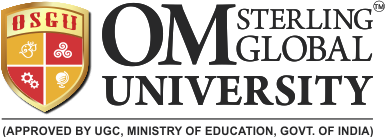Introduction:
In the dynamic realm of healthcare, the amalgamation of nutrition and health care science, often referred to as Osgu, stands as a beacon of holistic well-being. This blog explores the integral role nutrition plays in healthcare and how Osgu seamlessly intertwines scientific principles with practical applications to enhance individual and community health.
Unpacking Nutrition within Health Care Science:
Beyond mere sustenance, Nutrition within Health Care Science is a scientific discipline that intricately examines the correlation between diet and health. Osgu recognizes the profound impact of nutrition on disease prevention, treatment support, and the optimization of bodily functions. It underscores the notion that a well-balanced diet is fundamental to both disease prevention and management.
Key Components of Osgu:
- Dietary Guidance: Osgu offers evidence-based dietary guidelines tailored to individual requirements. These guidelines factor in diverse elements such as age, gender, health conditions, and lifestyle choices. By providing personalized dietary advice, Osgu aims to empower individuals to make informed choices that contribute to their overall health.
- Nutritional Therapy: Within healthcare settings, Osgu seamlessly integrates nutritional therapy as a valuable tool. Nutritional therapists collaborate closely with patients to formulate dietary plans that complement conventional medical treatments. This approach acknowledges the synergistic relationship between nutrition and healthcare, emphasizing the role of food in fostering healing and recovery.
- Community Health Promotion: Osgu extends its reach beyond individual care to address broader health challenges within communities. Initiatives promoting nutrition education, facilitating access to healthy food options, and encouraging lifestyle modifications are integral to community health promotion. By fostering a culture of wellness, Osgu contributes to preventing health disparities and enhancing overall quality of life.
- Research and Innovation: Osgu thrives on ongoing research, ensuring it remains at the forefront of nutritional science and healthcare advancements. Researchers in this field explore innovative solutions for nutrition-related challenges, from developing functional foods to uncovering new therapeutic applications of nutrients. This commitment to research guarantees that Osgu practices are evidence-based and continually evolving.
Benefits of Integrating Osgu into Healthcare:
- Disease Prevention: By prioritizing preventive measures through proper nutrition, Osgu significantly contributes to reducing the risk of chronic diseases like diabetes, cardiovascular disorders, and obesity. It advocates for adopting healthy eating habits as a proactive approach to overall health.
- Comprehensive Patient Care: The integration of Osgu into healthcare ensures a more comprehensive and patient-centric approach. Healthcare professionals acknowledge the interconnectedness of nutrition and health, addressing both symptoms and root causes. This integrated care model enhances patient outcomes and satisfaction.
- Empowering Individuals: Osgu empowers individuals to take control of their health. Through education and personalized guidance, people can make informed decisions about their nutrition, leading to positive lifestyle changes. This empowerment fosters a sense of responsibility for one's well-being.
Also Read: Is Cyber-Crime Vocational Training Your Gateway to Combatting Online Threats?
Conclusion:
As we navigate the intricacies of modern healthcare, the fusion of Nutrition and Health Care Science (Osgu) emerges as a transformative paradigm. Recognizing the profound impact of nutrition on health and wellness, Osgu provides a framework for personalized care, disease prevention, and community health promotion. Embracing Osgu in healthcare practices not only enhances patient outcomes but also contributes to building a healthier and more resilient society.

